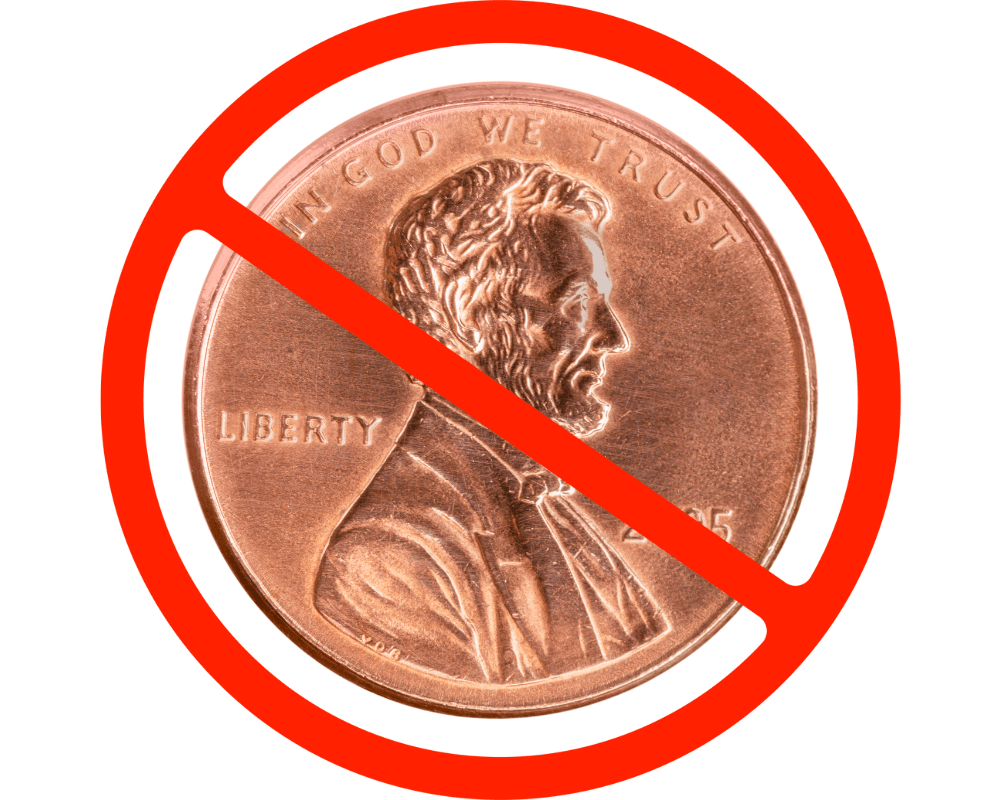Bellevue 425-454-1283 · Lynnwood 425-672-2646 · Issaquah 425-392-0450 · Tacoma 253-328-4014

The humble penny has a long history – the first pennies were minted in 1793! And as it turns out, that history may be coming to a close. There’s been buzz about the U.S. government potentially discontinuing the penny. What would getting rid of pennies actually mean?
While we don’t know if discontinuing pennies will actually happen, this guide explores what would happen if they were discontinued.
There are two main reasons why pennies are considered being discontinued:
Put simply, pennies are expensive to produce, aren’t used very often, and are worth so little that many people don’t like to use them.
If the U.S. mint were to end production of pennies, that would eliminate the cost to produce them and save the government a small amount of money.
But at the same time, it would send ripple effects through the cash economy that could cause problems.
Retailers keep coins of all denominations stocked so that they can provide accurate change. They order these coins from banks, which must keep large stocks of coins and bills of all denominations on hand. In turn, banks order these coins from the U.S. Mint. If the Mint were to end production, they simply wouldn’t have enough pennies to give out!
For this reason, discussion about ending penny production usually involves a similar conversation about how to adjust transactions to accommodate a penny-free economy.
To eliminate the penny entirely, cash transactions would need to be rounded. For example, a transaction that rings up as $10.96 after tax would be rounded down to $10.95 – and if you paid with $11, you would receive $0.05 as change.
This could create some confusion and controversy, but ultimately may make cash transactions more efficient. Sophisticated retail point of sale systems would be able to round automatically, but older systems may need manual intervention.
It wouldn’t be surprising to see the United States eliminate pennies, as our neighbors up north already have. In 2013, Canada began phasing out the penny – first stopping production, then ending distribution, and beginning a rounding system for cash transactions.
The Canadian mint discontinued the penny for the same reasons as the U.S. is weighing, primarily cost-cutting.
The roll out faced some resistance from Canadians who paid using cash, but ultimately was adopted successfully. Today, cash transactions in Canada are simply rounded up or down to the nearest $0.05.
To be clear, discontinuing the penny doesn’t mean that the penny would become worthless. It would still be legal tender, and banks would be able to accept them. Businesses would likely still be required to accept pennies as well, at least for a period of time – they just wouldn’t give change in pennies.
Pennies are of course worth 1 cent, as that is their face value. However, with rising copper and zinc prices, the true intrinsic value of a penny is higher.
Currently, it is illegal to melt down pennies for their raw materials, because the penny is legal tender. This could potentially change if the penny were discontinued, although this remains to be seen.
Some bullion enthusiasts stock up on bulk pennies in the hope that they will one day be worth more due to their copper content. In fact, if you look on eBay or other online marketplaces, you can find large lots of bulk pennies for sale, often by the pound!
At this point, the discussion about getting rid of pennies is just that – a discussion. We don’t yet know if it will become policy or if these changes will take effect. Stay tuned for more information as things evolve!
Interested in coins? Bellevue Rare Coins is the Seattle region’s trusted coin shop, with locations in Tacoma, Bellevue, Lynnwood, and Issaquah. Come see us today to chat coins, pick up a new item for your collection, or buy or sell bullion.